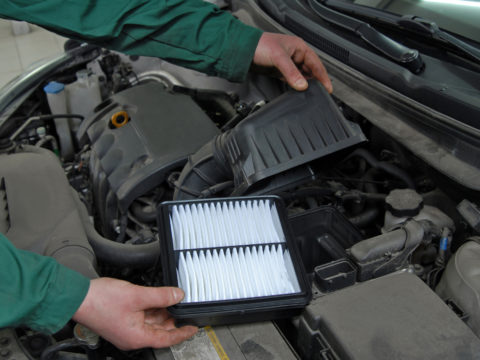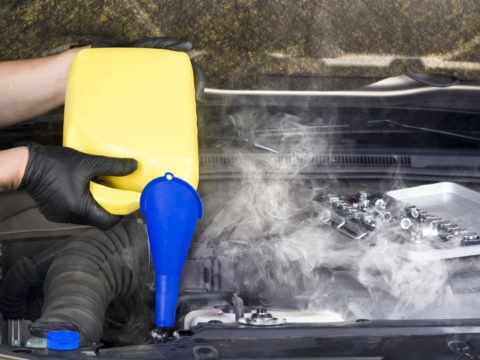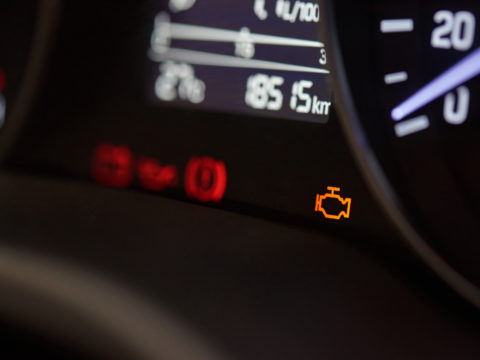You may have heard of tuning. Maybe you think it’s something to do with a musical instrument. Or maybe when I say the word diesel, you think, Vin. We’re going to go through exactly what it is and the benefits it can have on your car. Car enthusiasts and beginners alike, hop in, and let’s get into it.

Contents
What Does Tuning Do to a Car?
Let’s try to make this simple. Tuning is changing a car’s variables to optimize peak engine performance. This will increase your car’s torque and horsepower.
Modern cars are heavily controlled by a computer, also known as the ECU. Your ECU is what limits your basic engine power. Your ECU is a type of electronic control unit, aka computer, that gathers data from the sensors placed around your car.
It calculates the sensors and makes its decisions using inputs such as throttle position and outputs such as ignition timing.
You could turn a pair of identical engines into distant cousins. For example, you could create an engine with maximum fuel economy or an engine with better performance. Or you could have a percentage of both.
The computer is the power. Tune the computer, control the engine.
What does turbo tuning do to a car?
The air filter in the car is pumped up a notch, which generates more horsepower and is especially popular in diesel engines because the turbochargers give higher torque.
What does a car tuning chip do?
Chip tuning changes the air/fuel ratio, increasing torque while making a change in the fuel economy. It’s usually a method used by those who are after fuel efficiency, thus leading to less horsepower than other methods.
Why Should You Tune Your Car?
You don’t have to be a race-car driver to want to tune your car. Car modification is for those that want better, whether it be from performance or appearance.
There’s more than one type of auto-tuning. There’s suspension tuning and break and body tuning. This work is common for people wanting to improve their car rather than to stand out from the crowd.
Sometimes, improving the way you drive can be as simple as changing your tires. This can affect factors like rolling resistance, ride comfort, and ground clearance. Or take a look at installing bigger brakes, shock absorbers, or dome struts that can increase performance.
Here are the three main reasons:
Improve acceleration
You’ll get more performance out of your car with its increased acceleration. Enhancing performance parts such as the cold air intake will give your car faster acceleration. However, other factors can get in the way, such as your car’s size and weight.
Enhance torque
Back in the day, changing your torque curve meant changing hardware. Then in the 1970s, manufacturers decided to turn down the power produced in engines for better fuel economy.
Now that things such as valve timing and ignition timing can be varied without touching the hardware, tuners can enhance their RPM on a torque curve. By doing this, your engine controls have widened your performance requirements.
Increase engine power
Re-working the exhaust pipes results in increasing engine power to its maximum potential. Again, this will depend on size.
Types of Engine Tune-Up
Stage 1 tuning
This is essentially chip tuning. Turbocharged engines particularly see an increase in torque performance when their ECU is re-wired.
Stage 2 tuning
At this stage, you’re going to need a professional to install parts. It involves improving airflow and the sound of a car. For non-turbocharged cars, it involves fitting a cat-back system, and for turbocharged, it’s fitting a turbo-back system.
Stage 3 tuning
In addition to all of the stage 2 car modifications, stage 3 involves upgrading the cylinder head and spark plugs. But that’s not all. This is a costly tuning process and is recommended for race cars.
Stage 4 tuning
You’re now on the final lap, and it’s the last stage. Typically, this stage is not for road use but track only. There’s an upgrade in the turbocharger or supercharged engines as well as an upgrade in oil coolers and multi-hole injectors.
What to Do Before Getting Your Car Tuned
- Check your oil; you don’t want to turn up with poor or low oil.
- Check your spark plugs and get them replaced before rework.
- Check your fuel. The process can eat up a lot of fuel, so you want to make sure you have a lot of fresh gas in the tank.
- Check your tires and make sure they’re up to scratch.
- Check for any electrical wires that are trying to escape.
How Do You Tune a Car?
Yes, it’s possible to do it yourself. Take a look at these steps for using a car tuning kit:
Step 1. Get yourself an ECU Refreshing Tool
The ECU has an Electronically Erasable Reprogrammable Read Only Memory chip, a mouthful I know, which restricts changes being made. To make this happen, you can use the ECU Refreshing tool to erase the EEPROM and get yourself a new engine type. However, make sure to check each tool’s compatibility as they’re not one tool fits all.
Step 2. Get yourself a Dynamometer
I need to stop you there before you google this and get completely freaked out by the price. Yes, it costs thousands to purchase a Dynamometer yourself, so this isn’t what we’re recommending. Instead, rent a Dyno to test your car’s functionality.
Dyno tuning is the safest way to test your vehicle’s overall performance. This will give you an accurate reading of how much power output your vehicle possesses. There’s no need to be getting too fast or too furious here. You could end up with a speeding ticket or worse.
Step 3. Get yourself some functioning gauges
Having a gauge is going to be the extra support you need to get an accurate reading of your car’s transition.
Step 4. Install the software
Use a laptop with a good amount of memory to support software installation.
Step 5. The tuning work begins
With the software downloaded, you can tune your car. Most software has other features such as reading data and optimizing fuel efficiency.
Pros and Cons of Tuning a Car
Advantages of tuning a car
- You’ll receive more horsepower.
- Your personalized engine will fit into your lifestyle.
- Professional rework will add safety features.
- Tuned cars will deliver a clean burn and less build-up.
Disadvantages of tuning a car
- There’s a chance of poor quality rework.
- Bad tuning can worsen your car’s energy efficiency.
- A strain will be put on mechanical parts that may not be strong enough.
Check out some more information to help you make a decision.
How Much Does It Cost to Tune a Car?
To get a professional tune on your vehicle, it can cost between $200-$900. However, it could be more depending on your vehicle size, car manufacturer, and purpose.
Where to Tune Your Car
Typically, people go to independent workshops that specialize in rework. Also, most of them are remote if you don’t live too far away!
Have a look at some repair shops.
FAQs
How long does a dyno tune take?
If you prepare, it can take 2-4 hours.
Does tuning a car make it louder?
The more air moving through the exhaust pipe, the louder your engine will sound, but this isn’t the case for all car tuning. For example, chip tuning will have less horsepower.
What is stage 4 tuning?
This is typically for track drivers due to its high modification.
Is engine tuning legal?
Yes, it’s legal. However, some conversions to the internal combustion engine are illegal if you’re driving on regular roads. Therefore, it’s important to research the legal areas to ensure you’re operating responsibly.
Take a look at the modifications that are illegal in most states.

